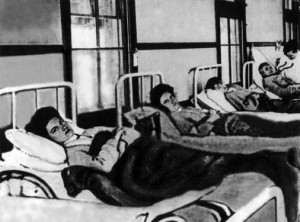Not washing her hands led to the previously anonymous Irish cook Mary Mallon being transformed into New York’s notorious Typhoid Mary. She was blamed for infecting more than 50 people with the disease in the early 1900s and reportedly said she rarely washed her hands when cooking as she didn’t see the need for it.
Food safety has come a long way since those heady days when fridges, food gloves and best-before dates were unheard of. Now, 
people starting up food businesses frequently complain about the overwhelming number of regulations facing them.
So does this improvement in food hygiene standards mean the number of food safety enforcement orders has collapsed in recent years? Actually, no.
According to the Food Safety Authority of Ireland (FSAI), 46 food businesses were served with enforcement orders in 2008. Last year, up to December 19th, 108 businesses had been served with the orders. This was 24 more than the total for 2011, or an annual increase of nearly 30 per cent. The types of orders vary but are all served because of a risk to public health posed by the restaurant, take-away, shop or food stall.
October saw the highest number of enforcement orders in 10 years and at that time the authority’s chief executive, Prof Alan Reilly, said food safety inspectors were regularly encountering cases where the health of consumers was being put at risk because the businesses were not meeting their legal obligations.
Common reasons for orders include pest infestation, lack of hygiene and storing food at the wrong temperature.
The FSAI’s director of service contracts, Dr Bernard Hegarty, told the Irish Times there is a suggestion that businesses are cutting back on food safety practices to save money. If they have fewer staff and those people are working harder it may mean corners are cut when it comes to hygiene practices.
